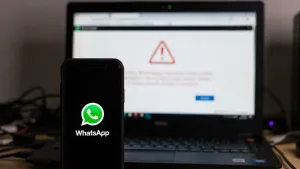Hyundai Motor has created its first group-level cyber threat response team to coordinate cybersecurity efforts across all of its brands and business units.
The team will oversee vulnerability assessments, threat monitoring and incident response for the entire group’s network and information systems.
The initiative marks a departure from the previous model, under which each affiliate managed its own security operations independently. Group sources say that the new structure will standardise tools, policies and governance across Hyundai Motor, Kia and other subsidiaries.
Leadership And Investment Details
The unit is headed by Yang Ki-chang, who also serves as head of Hyundai Motor’s Integrated Security Center. He will lead the new team in addition to his existing responsibilities.
This year, Hyundai Motor and Kia jointly invested approximately 62.14 billion won (about US$42.5 million) in information security, up 46.1 percent from last year. The group’s dedicated security workforce climbed to about 262 employees.
The increase reflects a broader commitment to elevate cybersecurity as a core business function rather than a support service.
Connected Vehicles Raise The Stakes
The auto industry now embraces connected vehicles with over-the-air software updates, telematics, and mobile-to-vehicle data flows. These systems make cars not just mechanical products but software-enabled networks.
That evolution has created new vectors for cyber-attacks, including remote control of systems, data interception and supply-chain intrusion. Hyundai’s initiative aims to strengthen its defenses against attacks that target both vehicles and infrastructure connected to them.
Industry Patterns And Precedents
In recent years, automakers and suppliers in Korea and globally have faced high-profile breaches and ransomware attacks that compromised production, data and reputation.
Hyundai’s move parallels similar shifts at peers who have begun centralising cybersecurity to handle increasingly sophisticated threats that cross affiliate boundaries and global operations.
According to Korea Internet & Security Agency (KISA), the combined investment by Hyundai Motor and Kia in security reflects the scale of the challenge, they spend significantly more now than they did two years ago.
Operational Implications For Governance
By forming a central unit, Hyundai Motor Group is integrating cybersecurity into its highest levels of decision-making. The new structure will allow it to respond faster to incidents, coordinate across affiliates, apply common standards and deploy unified tools.
For governance, this is a foundational shift: security is now becoming a group-wide pillar rather than an affiliate-managed task.
Going forward, auditors, regulatory agencies and the company’s board will likely receive consolidated metrics on incident response, threat detection times and affiliate compliance.
Indication About Automotive Risk
The automotive sector is moving into an era where cybersecurity is intertwined with vehicle safety, software integrity and trust. Hyundai’s step shows how manufacturers are recognising that hacking or data breaches are not just IT problems, they are core business risks.
As vehicles become software platforms, security readiness becomes a differentiator not only in production but in credibility with regulators and consumers.
Hyundai’s investment and structural change suggest that staying ahead of cyber-threats will increasingly determine which carmakers succeed in the connected-car era.






